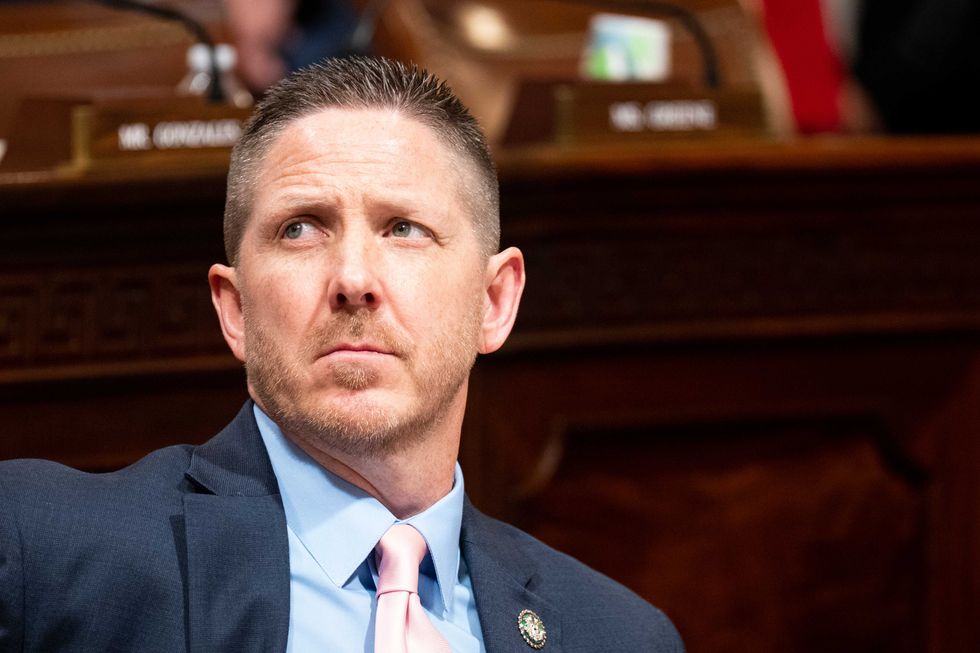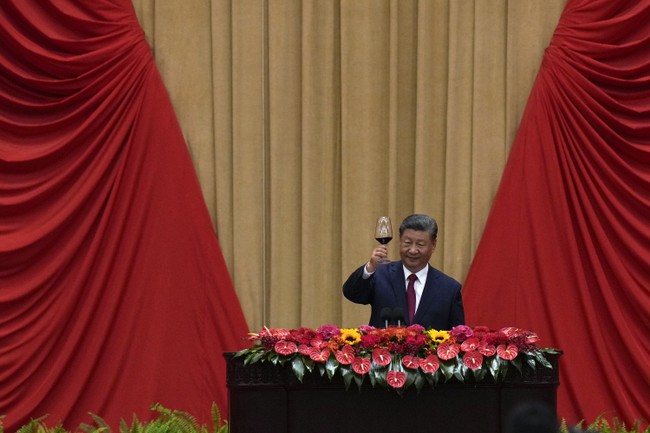
www.theblaze.com
Don't fall for the fake 'banned books' narrative
October 11 marked the end of another Banned Books Week, the American Library Association's annual campaign celebrating works it claims have been unjustly kept from the reading public.While the event has skewed liberal since its 1982 founding, this year’s theme seems to make a direct appeal to those worried about the Trump era's incipient fascism.A book does not need to induce the behavior it depicts to have an ideological impact; it just has to imply a world in which such behavior is either normal or inevitable.“Censorship Is So 1984 — Read for Your Rights” rebukes recent successful conservative campaigns to rid local school libraries of books deemed to promote racial, gender, and Marxist ideology or to expose children to inappropriately explicit material.Censor censureOn its website, the ALA dismisses these campaigns as either disingenuous, hysterical, or malicious.“The most common justifications for censorship provided by complainants were false claims of illegal obscenity for minors; inclusion of LGBTQIA+ characters or themes; and covering topics of race, racism, equity, and social justice.”The recent Kanopy documentary "Banned Together" exemplifies this perspective, portraying book challenges as the work of fearmongering politicians like Governor Ron DeSantis (R-Fla.) or “dark money” groups such as the Heritage Foundation and Moms for Liberty.Not for teacherOpponents of these "bans" do have a point. At times overprotective adults can underestimate the capacity of high-school students to handle challenging subject matter. I recall reading Kafka, Camus, and Sherman Alexie as a senior without becoming either a nihilist or an activist.But there is a deeper question at the heart of this debate: What rights do parents have when it comes to their children's education?Teachers, progressives argue, are certified experts entrusted with the crucial duty to help students navigate complex issues and protect them from abusive home environments. Who are the parents — relative amateurs when it comes to the formation of young minds — to meddle?Yet given the recent injection of what used to be considered radical ideas about race, sex, and religion into curricula, skepticism at this expertise is understandable. Educators may laugh off the idea of "liberal indoctrination," but any parent who has been called "racist" or had his faith "deconstructed" by his newly minted college student may disagree.'Sold' outThe ALA may be technically correct that the books it defends don't meet the strictly legal definition of "obscenity," but something is nonetheless rotten in the state of Denmark (if the reader will permit me a Eurocentric "Hamlet" reference).Consider the ALA’s "Top 10 Most Challenged Books of 2024." Without exception, each has been flagged by concerned parents as "sexually explicit." It's telling that the ALA diminishes these characterizations as mere "claims." Unlike "pornography," the label "sexually explicit" generally implies no judgment; it's merely descriptive.So perhaps something more than prudishness is motivating parents. To what end do these books employ explicit depictions of sex? In Patricia McCormick's "Sold," the first-person account of a 13-year-old Tibetan girl sold into sex slavery, detailed scenes of rape and abuse are used to convey the horrors of sex trafficking.In its defense of "Sold," the ALA clearly sides with McCormick, who says "To ban this book is a disservice to the women who shared their stories with me so the world could know about their plight. And to ban this book is disrespectful to the young readers who want to know about the world as it is."Conveniently overlooked here is the obvious truth that we regularly educate our children about "the world as it is" while still leaving out age-inappropriate details.Gender fear"Tricks" by Ellen Hopkins is another unsparingly graphic account of the sex trade, detailing the stories of five American teens who fall into prostitution. "Crank," Hopkins' other novel on the list, charts a teenager's descent into drug addiction.Stephen Chbosky's "The Perks of Being a Wallflower" is a slice of high school life that includes a ninth-grader taking LSD, a tumultuous love affair between two teenage boys, a middle-schooler's suicide, and a teen pregnancy that ends in abortion."Me and Earl and the Dying Girl" by Jesse Andrews addresses cancer and mortality through the profanity-laden, sex-obsessed voice of its adolescent male protagonist. John Green's "Looking for Alaska" is a coming-of-age novel with a heavy emphasis on drug use and sexual experimentation.Toni Morrison's "The Bluest Eye" is a multigenerational saga that pivots on a father's brutal rape of his daughter and her subsequent descent into insanity.The memoirs "All Boys Aren't Blue" by George M. Johnson and "Flamer" by Mike Curato each recount an adolescent's discovery and eventual embrace of his same-sex attraction, while Maia Kobabe's graphic novel "Gender Queer" charts the author's journey toward a "nonbinary" identity and the use of "e, em, eir" pronouns.RELATED: Librarian group fights woke 'banned books' narrative Getty Images/AnadoluGroomer doomersLikening those who advocate putting such books in the hands of minors to "groomers" only obscures the real issue. A book does not need to induce the behavior it depicts to have an ideological impact; it just has to imply a world in which such behavior is either normal or inevitable.The "reality" these books represent is in fact the relatively recent consensus of a small liberal elite, imposed on our society from the top down. It confidently asserts that racism is an intractable quality of "whiteness," premarital sex and drug abuse are normal parts of growing up, homosexual relationships are in no way less preferable than heterosexual pairings, and one's "gender" is open to interpretation.This consensus casually dispenses with the de facto Christian values that have guided America — with varying degrees of success — since its founding.Slaves to fashionMost of the "banned" book defenders act not out of malice but rather from an unthinking adherence to fashionable opinion. As G.K. Chesterton observed, compulsory secular education inevitably produces an inoffensive, pluralistic system that offends no one and invests enormous moral authority in teachers:And if his own private opinions happen to be of the rather crude sort that are commonly contemporary with and connected with the new sciences or pseudo-sciences, he can teach any of them under cover of those sciences.In other words, educators possess enough authority to smuggle personal beliefs into the classroom. The Ten Commandments and school prayer are impermissible in our secular age, but theories of gender and race are treated as objective truth. Indeed, many insist it would be irresponsible not to teach them.A glance at what doesn’t appear on the Banned Books list reveals the imbalance. Are activists urging students to read banned right-wing literature? To restore the Bible to school libraries? To study "The Turner Diaries" — a genuinely vile book — in the name for of intellectual freedom? Of course not.Meanwhile, the publishing industry’s broken business model incentivizes controversy. Slapping a "Banned Book" sticker on a new release is can lead to a major boost in sales.School for scandalThat might be harmless if confined to a Barnes & Noble display. But it occurs in the context of public education, where foundational classics have been quietly displaced by shallower contemporary novels. Teachers boast about removing Homer, Shakespeare, and other “dead white men” from curricula. "Huckleberry Finn" languishes while legislators debate striking him from schools altogether.A student’s reading years are limited. Prioritizing great works that shape moral and intellectual formation is essential. Yet in an age of collapsing institutional trust, progressive educators flaunt their credentials and demand the state’s blessing to teach whatever they see fit.Despite left-wing rhetoric, there is no great epidemic of book-burning in America. Aside from the occasional Pentecostal preacher torching "Harry Potter" for headlines, such incidents are rare. Conservatives, generally, are classicists who want their children reading Homer and Shakespeare. Yet even modest debates over age-appropriate material draw accusations of illiteracy and bigotry.And that's by design. Banned Books Week is little more than a marketing campaign — an annual ritual of ginning up demand for “forbidden” books and laundering blatant activist propaganda into the merely "controversial." Conservatives who approach this debate on the ALA's terms only add fuel to the fire, as it were. When it comes to the left's persecution narrative, there's no such thing as bad publicity.















